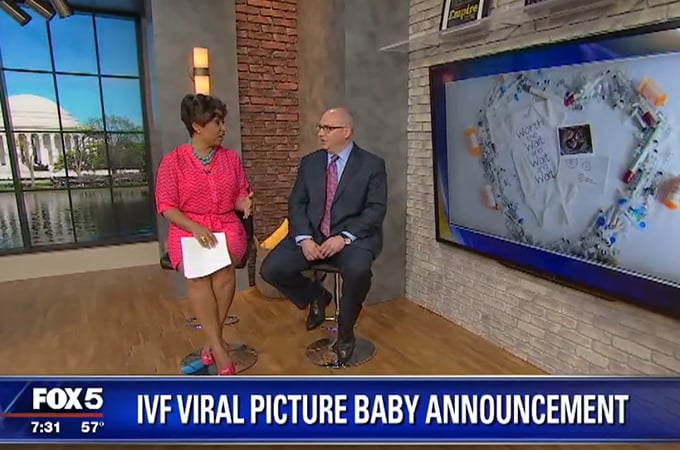Last month, Jean Twenge made a splash in The Atlantic and on Good Morning America, disputing at what age fertility really did drop for women. Twenge suggests that fertility doesn’t decline when a woman is in her 30s but rather when she is in her 40s. Is she right? When does a women’s biological clock really start ticking?
“While there have been great improvements in achieving successful pregnancies with fertility treatment, one area that has always been challenging is related to the age of the egg,” says Stephen Greenhouse, MD. “Many women have successful and healthy pregnancies after the age of 35. However, often times when couples are asked how long they have been trying to conceive, they say only a few months, but in fact they stopped using birth control 2 years ago. This couple likely has some form of infertility but may not realize it.” This is an example of ‘let’s just see what happens’ or ‘we’re trying but not really trying’ mentality. The truth is, if you are having intercourse regularly without protection for a year and you have not conceived you likely may need to see a fertility specialist.
| At what age does your fertility decline? |
“It is important that couples plan family building, discuss when they are ready to have children, and part of their planning should be related to the age of both the woman and man. Also something to consider is that couples may not have problem getting pregnant when the women is in her early 30s but if they wish to have more than one child, they may experience problems when trying for the second or third,” explains Dr. Greenhouse.
According to Dr. Greenhouse, “Couples do not need to panic if the woman is 35 but they should be proactive in discussing their options if they have been trying for more than six months. The chances of conceiving each month for a women who is 35 is about 12-15% per month and this begins to decline after trying for 4-5 months. Age is by far the most important predictor of success.”
What is agreed upon by all parties is an increased risk of having a baby with chromosomal abnormalities as the parents get older. Dr. Greenhouse speaks from experience, “I have seen many couples who regret not coming in earlier to seek treatment for their conception delays. Unfortunately, we cannot go back and make up for lost time.”
- Read Fertility Authority’s “Bust a Myth About Age and Fertility” with Dr. Eric Levens
- Dr. Naveed Khan Explains “The Best Time to See a Fertility Specialist”
If you are having trouble conceiving and would like to speak with one of our New Patient Liaisons by calling 877-971-7755 or schedule an appointment.




